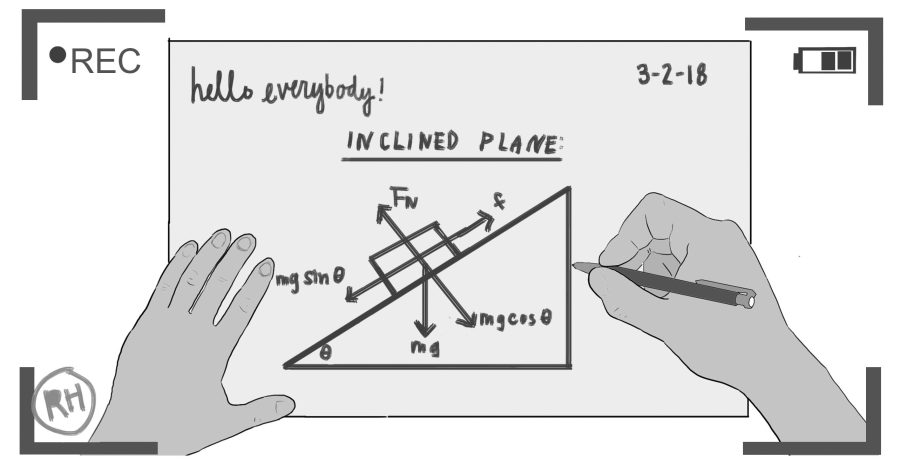We’ve all been there: it’s the night before a unit test, and the first few sections of the chapter remain a distant memory. You anxiously rush to your textbook, trying to relearn lessons that you never really grasped in the first place, to no avail. You read the textbook over and over again, searching for the glimmering hope that the content will somehow make sense.
This struggle, stress and search for help could have been avoided if your teacher had taken a few extra minutes to record the lesson.
If all math and science teachers recorded their lessons, their students would be able to grasp content more holistically and exit the course with a more comprehensive understanding of the material and a better grade.
The most obvious benefit to having teachers record their lessons is that students would be able to review them an unlimited amount of times before a test. Rather than being forced to rely on a textbook or online resources that might not align with the curriculum, students would be able to refresh themselves on the very content that the teacher previously went over.
This also proves to be very useful for cumulative exams, such as midterms or finals at the end of the semester.
Rather than scrambling to old worksheets and notes, students can relearn the content the same way they did the first time by watching and hearing their teacher explain it.
Next, for students that miss class, this system is unparalleled in providing assistance for catching up. Students can get as close to the experience that other students got during the lesson without having been there.
With videos, students are also able to pinpoint specific parts of the lesson that they had trouble grasping and can hear the teacher explain it again and again and again.
Being able to review lessons would allow students to fill in the holes in their understanding of the lesson from the first time.
The benefit of this video system especially applies to math and science, since it’s easier to understand a concept by seeing it used in practice than it is to read a formula from a textbook. While textbooks do generally include examples of how to apply formulas, they are often poorly explained and harder to understand than a video would be. This would especially benefit auditory learners, as the ability to hear the content would make it easier to grasp.
One of the biggest benefits to this system is that it puts less pressure on the students to feel like they immediately have to understand concepts the first time they are taught.
To truly understand a lesson and know how to complete a task consistently, it’s essential to review the material thoroughly. This system lets students know that there is always be the possibility and that if they become overwhelmed by the content the first time, then they’ll be able to go over it as many times as they need to. Furthermore, it allows students to review material on their own time, since it can be hard to make it to Flex during weeks with a heavier workload.
It could be argued that setting up this system would be a lot of work for teachers, but realistically, this process shouldn’t take much more than a few moments for a teacher per class. And if they just record one of the periods and share it with all students, teachers would only have to spend a few moments every few days in exchange for an insurmountable increase in learning and understanding.
Students would be more than willing to assist a teacher in pressing a record button on a camera, if it meant being able to review a lesson.
The benefits of this system clearly outweigh the minimal technical implications.
By implementing this system, Paly would see an increase in students engagement and understanding of the material, while lowering the academic stress and pressure felt while trying to focus on grasping content the first time it is presented while trying to focus on grasping content the first time it is presented.



